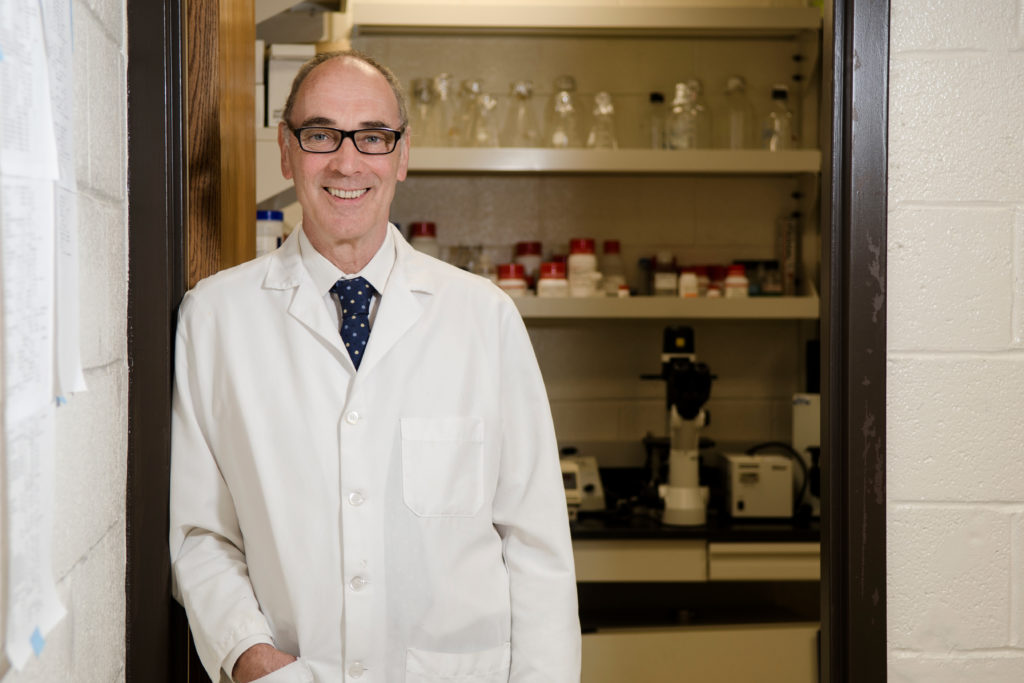Following an overhaul of the University’s core research office, research faculty said a new reporting structure and new leader will shift the administration’s research priority from money to merit.
This fall, research faculty are working under a new vice president for research for the first time in about a decade, and he will report to the provost instead of the president. Faculty members said the changes could give GW’s research initiatives a fresh start, focusing on the academic merit of research instead of its potential to bring funds to the University.
Officials announced in July that Robert Miller, the former senior associate dean for research for the medical school, would assume the role of the vice president for research after the departure of the inaugural research chief this summer. University officials said GW would shift the structure of the office in April so that the vice president for research would report directly to the provost’s office to better align research with academics.
Harald Griesshammer, an associate professor of physics and a member of the Faculty Senate, said for at least a decade, faculty members have collectively felt OVPR only prioritized the amount of money a project would yield because earnings may offset the University’s mounting debt, which has climbed to approximately $1.5 billion in recent years.
“If you bring in a lot of dollars, you will have platinum membership in the research club, and if you only bring in a meager – or hardly any – dollars, then you will be treated as a third-class citizen,” he said.
The University launched a faculty task force last spring to address faculty members’ concerns about research processes, including obtaining grants and conducting experiments.
Jamie Cohen-Cole, an associate professor of American studies, said changing the reporting structure of OVPR sets the office up to better recognize the value of having diversity in research projects.
“Such recognition can enhance the possibility of the University implementing nimble and adaptive investments based on identifying low-hanging fruit, leveraging existing but untapped core-competencies and being responsive to the on-the-ground needs of specific research programs,” Cohen-Cole said in an email.
Keith Crandall, the director of the Computational Biology Institute and a professor of biology, said for institutes like his own, the realignment between OVPR and the provost’s office means less of a disconnect between conversations with GW’s research chief about potential projects and the reality of funding coming from the provost.
“It actually empowers the vice president for research to get some things done because now he’s reporting to the person who’s actually the one who has fiduciary responsibility for the University,” Crandall said.
Miller, the vice president for research, said reporting to the provost’s office will support more cross-institutional and cross-disciplinary collaborations, where two offices can collaborate on event planning, budgeting and programming for research faculty.
“Our goal is to further develop infrastructure and administrative support that is scalable and adaptable to the needs of GW’s growing research community, to invest in core facilities that give our researchers the tools they need to succeed,” he said in an email.
Miller said as he was entering the role, he heard concerns from faculty members in the humanities and social sciences, who previously lamented that they felt undervalued within GW’s research community because their projects typically don’t yield large amounts of funding compared to scientific endeavors.
“We will strive for parity in all the funding decisions made by OVPR,” Miller said.
Miller said he will also invest in research facilities and will introduce “new tools” to recruit more “top-tier” scholars and researchers. He did not specify what facilities and tools will be provided.
GW’s former vice president for research, Leo Chalupa, said that when he was hired by former University President Steven Knapp, it made sense to report to the president’s office because there was little infrastructure in place for academic research – but now, there is more of a foundation for research projects.
“Before I was building. Now, it’s kind of maintaining the status quo,” Chalupa said.




